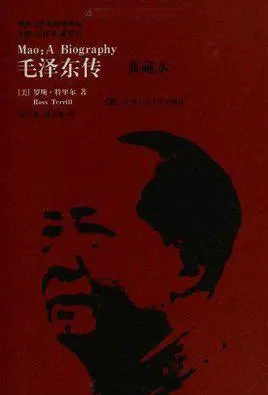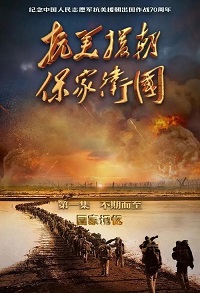The Emperor, though ill and discommoded on horseback by a local trouble, had never been in a better humor than on that day. His impenetrability had been smiling ever since the morning. On the 18th of June, that profound soul masked by marble beamed blindly. The man who had been gloomy at Austerlitz was gay at Waterloo. The greatest favorites of destiny make mistakes. Our joys are composed of shadow. The supreme smile is God's alone.
Ridet Caesar, Pompeius flebit, said the legionaries of the Fulminatrix Legion. Pompey was not destined to weep on that occasion, but it is certain that Caesar laughed. While exploring on horseback at one o'clock on the preceding night, in storm and rain, in company with Bertrand, the communes in the neighborhood of Rossomme, satisfied at the sight of the long line of the English camp-fires illuminating the whole horizon from Frischemont to Braine-l'Alleud, it had seemed to him that fate, to whom he had assigned a day on the field of Waterloo, was exact to the appointment; he stopped his horse, and remained for some time motionless, gazing at the lightning and listening to the thunder; and this fatalist was heard to cast into the darkness this mysterious saying, "We are in accord." Napoleon was mistaken. They were no longer in accord.
He took not a moment for sleep; every instant of that night was marked by a joy for him. He traversed the line of the principal outposts, halting here and there to talk to the sentinels. At half-past two, near the wood of Hougomont, he heard the tread of a column on the march; he thought at the moment that it was a retreat on the part of Wellington. He said: "It is the rear-guard of the English getting under way for the purpose of decamping. I will take prisoners the six thousand English who have just arrived at Ostend." He conversed expansively; he regained the animation which he had shown at his landing on the first of March, when he pointed out to the Grand-Marshal the enthusiastic peasant of the Gulf Juan, and cried, "Well, Bertrand, here is a reinforcement already!" On the night of the 17th to the 18th of June he rallied Wellington. "That little Englishman needs a lesson," said Napoleon. The rain redoubled in violence; the thunder rolled while the Emperor was speaking.
At half-past three o'clock in the morning, he lost one illusion; officers who had been despatched to reconnoitre announced to him that the enemy was not making any movement. Nothing was stirring; not a bivouac-fire had been extinguished; the English army was asleep. The silence on earth was profound; the only noise was in the heavens. At four o'clock, a peasant was brought in to him by the scouts; this peasant had served as guide to a brigade of English cavalry, probably Vivian's brigade, which was on its way to take up a position in the village of Ohain, at the extreme left. At five o'clock, two Belgian deserters reported to him that they had just quitted their regiment, and that the English army was ready for battle. "So much the better!" exclaimed Napoleon. "I prefer to overthrow them rather than to drive them back."
In the morning he dismounted in the mud on the slope which forms an angle with the Plancenoit road, had a kitchen table and a peasant's chair brought to him from the farm of Rossomme, seated himself, with a truss of straw for a carpet, and spread out on the table the chart of the battle-field, saying to Soult as he did so, "A pretty checker-board."
In consequence of the rains during the night, the transports of provisions, embedded in the soft roads, had not been able to arrive by morning; the soldiers had had no sleep; they were wet and fasting. This did not prevent Napoleon from exclaiming cheerfully to Ney, "We have ninety chances out of a hundred." At eight o'clock the Emperor's breakfast was brought to him. He invited many generals to it. During breakfast, it was said that Wellington had been to a ball two nights before, in Brussels, at the Duchess of Richmond's; and Soult, a rough man of war, with a face of an archbishop, said, "The ball takes place to-day." The Emperor jested with Ney, who said, "Wellington will not be so simple as to wait for Your Majesty." That was his way, however. "He was fond of jesting," says Fleury de Chaboulon. "A merry humor was at the foundation of his character," says Gourgaud. "He abounded in pleasantries, which were more peculiar than witty," says Benjamin Constant. These gayeties of a giant are worthy of insistence. It was he who called his grenadiers "his grumblers"; he pinched their ears; he pulled their mustaches. "The Emperor did nothing but play pranks on us," is the remark of one of them. During the mysterious trip from the island of Elba to France, on the 27th of February, on the open sea, the French brig of war, Le Zephyr, having encountered the brig L'Inconstant, on which Napoleon was concealed, and having asked the news of Napoleon from L'Inconstant, the Emperor, who still wore in his hat the white and amaranthine cockade sown with bees, which he had adopted at the isle of Elba, laughingly seized the speaking-trumpet, and answered for himself, "The Emperor is well." A man who laughs like that is on familiar terms with events. Napoleon indulged in many fits of this laughter during the breakfast at Waterloo. After breakfast he meditated for a quarter of an hour; then two generals seated themselves on the truss of straw, pen in hand and their paper on their knees, and the Emperor dictated to them the order of battle.
At nine o'clock, at the instant when the French army, ranged in echelons and set in motion in five columns, had deployed-- the divisions in two lines, the artillery between the brigades, the music at their head; as they beat the march, with rolls on the drums and the blasts of trumpets, mighty, vast, joyous, a sea of casques, of sabres, and of bayonets on the horizon, the Emperor was touched, and twice exclaimed, "Magnificent! Magnificent!"
Between nine o'clock and half-past ten the whole army, incredible as it may appear, had taken up its position and ranged itself in six lines, forming, to repeat the Emperor's expression, "the figure of six V's." A few moments after the formation of the battle-array, in the midst of that profound silence, like that which heralds the beginning of a storm, which precedes engagements, the Emperor tapped Haxo on the shoulder, as he beheld the three batteries of twelve-pounders, detached by his orders from the corps of Erlon, Reille, and Lobau, and destined to begin the action by taking Mont-Saint-Jean, which was situated at the intersection of the Nivelles and the Genappe roads, and said to him, "There are four and twenty handsome maids, General."
Sure of the issue, he encouraged with a smile, as they passed before him, the company of sappers of the first corps, which he had appointed to barricade Mont-Saint-Jean as soon as the village should be carried. All this serenity had been traversed by but a single word of haughty pity; perceiving on his left, at a spot where there now stands a large tomb, those admirable Scotch Grays, with their superb horses, massing themselves, he said, "It is a pity."
Then he mounted his horse, advanced beyond Rossomme, and selected for his post of observation a contracted elevation of turf to the right of the road from Genappe to Brussels, which was his second station during the battle. The third station, the one adopted at seven o'clock in the evening, between La Belle-Alliance and La Haie-Sainte, is formidable; it is a rather elevated knoll, which still exists, and behind which the guard was massed on a slope of the plain. Around this knoll the balls rebounded from the pavements of the road, up to Napoleon himself. As at Brienne, he had over his head the shriek of the bullets and of the heavy artillery. Mouldy cannon-balls, old sword-blades, and shapeless projectiles, eaten up with rust, were picked up at the spot where his horse' feet stood. Scabra rubigine. A few years ago, a shell of sixty pounds, still charged, and with its fuse broken off level with the bomb, was unearthed. It was at this last post that the Emperor said to his guide, Lacoste, a hostile and terrified peasant, who was attached to the saddle of a hussar, and who turned round at every discharge of canister and tried to hide behind Napoleon: "Fool, it is shameful! You'll get yourself killed with a ball in the back." He who writes these lines has himself found, in the friable soil of this knoll, on turning over the sand, the remains of the neck of a bomb, disintegrated, by the oxidization of six and forty years, and old fragments of iron which parted like elder-twigs between the fingers.
Every one is aware that the variously inclined undulations of the plains, where the engagement between Napoleon and Wellington took place, are no longer what they were on June 18, 1815. By taking from this mournful field the wherewithal to make a monument to it, its real relief has been taken away, and history, disconcerted, no longer finds her bearings there. It has been disfigured for the sake of glorifying it. Wellington, when he beheld Waterloo once more, two years later, exclaimed, "They have altered my field of battle!" Where the great pyramid of earth, surmounted by the lion, rises to-day, there was a hillock which descended in an easy slope towards the Nivelles road, but which was almost an escarpment on the side of the highway to Genappe. The elevation of this escarpment can still be measured by the height of the two knolls of the two great sepulchres which enclose the road from Genappe to Brussels: one, the English tomb, is on the left; the other, the German tomb, is on the right. There is no French tomb. The whole of that plain is a sepulchre for France. Thanks to the thousands upon thousands of cartloads of earth employed in the hillock one hundred and fifty feet in height and half a mile in circumference, the plateau of Mont-Saint-Jean is now accessible by an easy slope. On the day of battle, particularly on the side of La Haie-Sainte, it was abrupt and difficult of approach. The slope there is so steep that the English cannon could not see the farm, situated in the bottom of the valley, which was the centre of the combat. On the 18th of June, 1815, the rains had still farther increased this acclivity, the mud complicated the problem of the ascent, and the men not only slipped back, but stuck fast in the mire. Along the crest of the plateau ran a sort of trench whose presence it was impossible for the distant observer to divine.
What was this trench? Let us explain. Braine-l'Alleud is a Belgian village; Ohain is another. These villages, both of them concealed in curves of the landscape, are connected by a road about a league and a half in length, which traverses the plain along its undulating level, and often enters and buries itself in the hills like a furrow, which makes a ravine of this road in some places. In 1815, as at the present day, this road cut the crest of the plateau of Mont-Saint-Jean between the two highways from Genappe and Nivelles; only, it is now on a level with the plain; it was then a hollow way. Its two slopes have been appropriated for the monumental hillock. This road was, and still is, a trench throughout the greater portion of its course; a hollow trench, sometimes a dozen feet in depth, and whose banks, being too steep, crumbled away here and there, particularly in winter, under driving rains. Accidents happened here. The road was so narrow at the Braine-l'Alleud entrance that a passer-by was crushed by a cart, as is proved by a stone cross which stands near the cemetery, and which gives the name of the dead, Monsieur Bernard Debrye, Merchant of Brussels, and the date of the accident, February, 1637.[8] It was so deep on the table-land of Mont-Saint-Jean that a peasant, Mathieu Nicaise, was crushed there, in 1783, by a slide from the slope, as is stated on another stone cross, the top of which has disappeared in the process of clearing the ground, but whose overturned pedestal is still visible on the grassy slope to the left of the highway between La Haie-Sainte and the farm of Mont-Saint-Jean.
[8] This is the inscription:-- D. O. M. CY A ETE ECRASE, PAR MALHEUR, SOUS UN CHARIOT, MONSIEUR BERNARD, DE BRYE MARCHAND, A BRUXELLE LE [Illegible], FEVRIER 1637.
On the day of battle, this hollow road whose existence was in no way indicated, bordering the crest of Mont-Saint-Jean, a trench at the summit of the escarpment, a rut concealed in the soil, was invisible; that is to say, terrible.
皇上骑在马上,他虽然有病,虽因一点局部的毛病而感到不便,却从不曾有过那天那样愉快的心情。从早晨起,他那深沉莫测的神色中便含有笑意。一八一五年六月十八日,他那隐在冷脸下面的深邃的灵魂,盲目地发射着光辉。在奥斯特里茨心情沉闷的那个人,在滑铁卢却是愉快的。大凡受枯于天的异人常有那种无可理解的表现。我们的欢乐常蕴藏着忧患。最后一笑是属于上帝的。
“恺撒笑,庞培①哭。”福尔弥纳特利克斯的部下说过。这一次,庞培该不至于哭,而恺撒却确实笑了。
①庞培为纪元前一世纪罗马大帝恺撤的政敌,后卒为恺撒所败。
自从前一夜的一点钟起,他就骑着马,在狂风疾雨中和贝特朗一道巡视着罗松附近一带的山地,望见英军的火光从弗里谢蒙一直延展到布兰拉勒,照映在地平线上,他心中感到满意,好象觉得他所指定应在某日来到滑铁卢战场的幸运果然应时到了;他勒住了他的马,望着闪电,听着雷声,呆呆地停留了一会,有人听见那宿命论者在黑夜中说了这样一句神秘的话:“我们是同心协力的。”他搞错了,他们已不同心协力了。
他一分钟也不曾睡,那一整夜,每时每刻对他都是欢乐。他走遍了前哨阵地,随时随地停下来和那些斥候骑兵谈话。两点半钟,他在乌古蒙树林附近听见一个纵队行进的声音,他心里一动,以为是威灵顿退阵,他向贝特朗说:“这是英国后防军准备退却的行动。我要把刚到奥斯坦德的那六千英国兵俘虏过来。”他语气豪放,回想起三月一日在茹安海湾登陆时看见的一个惊喜若狂的农民,他把那农民指给大元帅①看,喊道:“看,贝特朗,生力军已经来了!”现在他又有了那种豪迈气概。六月十七到十八的那一晚上,他不时取笑威灵顿,“这英国小鬼得受点教训。”拿破仑说。雨更加大了,在皇上说话时雷声大作。
①大元帅指贝特朗。
到早晨三点半钟,他那幻想已经消失,派去侦察敌情的军官们回来报告他,说敌军毫无行动。一切安定,营火全没有熄。英国军队正睡着,地上绝无动静,声音全在天上。四点钟,有几个巡逻兵带来了一个农民,那农民当过向导,曾替一旅预备到极左方奥安村去驻防的英国骑兵引路,那也许是维维安旅。五点钟,两个比利时叛兵向他报告,说他们刚离开队伍,并且说英军在等待战斗。
“好极了!”拿破仑喊着说,“我不但要打退他们,而且要打翻他们。”
到了早晨,他在普朗尚努瓦路转角的高堤上下了马,立在烂泥中,叫人从罗松庄屋搬来一张厨房用的桌子和一张农民用的椅子,他坐下来,用一捆麦秸做地毯,把那战场的地图摊在桌上,向苏尔特说:“多好看的棋盘!”
由于夜里下了雨,粮秣运输队都阻滞在路上的泥坑里,不能一早到达;兵士们不曾睡,身上湿了,并且没有东西吃;但是拿破仑仍兴高采烈地向内伊叫着说:“我们有百分之九十的机会。”八点,皇上的早餐来了。他邀了几个将军同餐。一面吃着,有人谈到前天晚上威灵顿在布鲁塞尔里士满公爵夫人家里参加舞会的事,苏尔特是个面如大主教的鲁莽战士,他说:“舞会,今天才有舞会。”内伊也说:“威灵顿不至于简单到候陛下的圣驾吧。”皇上也取笑了一番。他性情原是那样的。弗勒里·德·夏布隆①说他“乐于嘲讪”。古尔戈②说他“本性好诙谐,善戏谑”。班加曼·贡斯当③说他“能开多种多样的玩笑,不过突梯的时候多,巧妙的时候少”。那种怪杰的妙语是值得我们大书特书的。称他的羽七日,在从厄尔巴岛回法国的那次神秘归程中,法国帆船“和风号”在海上遇见了偷载拿破仑的“无常号”,便向“无常号”探听拿破仑的消息,皇上当时戴的帽子上,还有他在厄尔巴岛采用的那种带几只蜜蜂的红白两色圆帽花,他一面笑,一面拿起传声筒,亲自回答说:“皇上平安。”见怪不怪的人才能开这类玩笑。拿破仑在滑铁卢早餐时,这种玩笑便开了好几次。早餐后,他静默了一刻钟,随后两个将军坐在那捆麦秸上,手里一支笔,膝上一张纸,记录皇上口授的攻击令。
①夏布隆(Chaboulon),拿破仑手下官员,百日帝政时期为拿破仑奔走效劳。
②古尔戈(Gouraud),将军,曾写日记记下拿破仑在赫勒拿岛的生活。
③贡斯当(Constant,1767?830),法国自由资产阶级活动家、政论家和作家,曾从事国家法问题的研究。
九点钟,法国军队排起队伍,分作五行出动,展开阵式,各师分列两行,炮队在旅部中间,音乐居首,吹奏进军曲,鼓声滚动,号角齐鸣,雄壮,广阔,欢乐,海一般的头盔,马刀和枪刺,浩浩荡荡,直抵天边,这时皇上大为感动,连喊了两声:
“壮丽!壮丽!”
从九点到十点半,全部军队,真是难于置信,都已进入阵地,列成六行,照皇上的说法,便是排成了“六个V形”。阵式列好后几分钟,在混战以前,正如在风雨将至的那种肃静中,皇上看见他从戴尔隆、雷耶和罗博各军中抽调出来的那三队十二利弗炮①在列队前进,那是准备在开始攻击时用来攻打尼维尔和热纳普路交叉处的圣约翰山的。皇上拍着亚克索的肩膀向他说:“将军,快看那二十四个美女。”
①发射重十二利弗(重一市斤)的炮弹的炮。
第一军的先锋连奉了他的命令,在攻下圣约翰山时去防守那村子,当那先锋连在他面前走过时,他满怀信心,向他们微笑,鼓舞他们。在那肃静的气氛中,他只说了一句自负而又悲悯的话,他看见在他左边,就是今日有一巨冢的地方,那些衣服华丽、骑着高头骏马的苏格兰灰衣队伍正走向那里集合,他说了声“可惜”。随听他跨上马,从罗松向前跑,选了从热纳普到布鲁塞尔那条路右边的一个长着青草的土埂做观战台,这是他在那次战争中第二次停留的地点。他第三次,在傍晚七点钟停留的地点,是在佳盟和圣拉埃之间,那是个危险地带;那个颇高的土丘今日还在,当时羽林军士全集在丘后平地上的一个斜坡下面。在那土丘的四周,炮弹纷纷射在石块路面上,直向拿破仑身旁飞来。如同在布里埃纳一样,炮弹和枪弹在他头上嘶嘶飞过。后来有人在他马蹄立过的那一带,拾得一些朽烂的炮弹、残破的指挥刀和变了形的枪弹,全是锈了的。“粪土朽木。”几年前,还有人在那地方掘出一枚六十斤重的炸弹,炸药还在,信管断在弹壳外面。
就在这最后停留的地点皇上向他的向导拉科斯特说话,这是个有敌对情绪的农民,很惊慌,被拴在一个骑兵的马鞍上,每次炮弹爆炸都要转过身去,还想躲在他的后面。皇上对他说:“蠢材!不要脸,人家会从你背后宰了你的。”写这几行字的人也亲自在那土丘的松土里,在挖进泥沙时,找到一个被四十六年的铁锈侵蚀的炸弹头和一些藿香梗似的一捏便碎的烂铁。
拿破仑和威灵顿交锋的那片起伏如波浪、倾斜程度不一致的平原,人人知道,现在已不是一八一五年六月十八日的情形了。在建滑铁卢纪念墩时,那悲惨的战场上的高土已被人削平了,历史失了依据,现在已无从认识它的真面目。为了要它光彩,反而毁了它原来的面貌。战后两年,威灵顿重见滑铁卢时曾喊道:“你们把我的战场改变了。”在今日顶着一只狮子的大方尖塔的地方,当时有条山脊,并且,它缓缓地向尼维尔路方面倾斜下来,这一带还不怎么难走,可是在向热纳普路那一面,却几乎是一种峭壁。那峭壁的高度在今日还可凭借那两个并立在由热纳普到布鲁塞尔那条路两旁的大土坟的高度估量出来,路左是英军的坟场,路右是德军的坟场。法军没有坟场。对法国来说,那整个平原全是墓地。圣约翰山高地由于取走了千万车泥土去筑那高一百五十尺、方圆半英里的土墩,现在它那斜坡已经比较和缓易行了,打仗的那天,尤其在圣拉埃一带,地势非常陡峭。坡度峻急到使英军的炮口不能瞄准在他们下面山谷中那所作为战争中心的庄屋。一八一五年六月十八日,雨水更在那陡坡上冲出无数沟坑,行潦遍地,上坡更加困难,他们不但难于攀登,简直是在泥中匍匐。高地上,沿着那山脊,原有一条深沟。那是立在远处的人意想不到的。
那条深沟是什么?我们得说明一下。布兰拉勒和奥安都是比利时的村子。两个村子都隐在低洼的地方,两村之间有一条长约一法里半的路,路通过那高低不平的旷地,常常陷入丘底,象一条壕堑,因此那条路在某些地方简直是一条坑道。那条路在一八一五年,和现在一样,延伸在热纳普路和尼维尔路之间,横截着圣约翰山高地的那条山脊,不过现在它是和地面一样平了,当时却是一条凹路,两旁斜壁被人取去筑纪念墩了。那条路的绝大部分从前就是,现在也还是一种壕沟,沟有时深达十二尺,并且两壁太陡,四处崩塌,尤其是在冬季大雨滂沱的时候,曾发生过一些祸害。那条路在进入布兰拉勒处特别狭窄,以致有一个过路人被碾死在一辆车子下面,坟场旁边有个石十字架可以证明,那十字架上有死者的姓名,“贝尔纳·德·勃里先生,布鲁塞尔的商人”,肇事的日期是一六三七年二月,碑文如下:
上帝鉴临,布鲁塞尔商人贝尔纳·德·勃里先生,不幸在此死于车下。
一六三七年二月×(碑文不明)日
在圣约翰山高地的那一段,那条凹路深到把一个叫马第·尼开兹的农民压死在路旁的崩土下面,那是在一七八三年,另外一个石十字架足资证明。那十字架在圣拉埃和圣约翰山庄屋之间的路左,它的上段已没在田中,但是那翻倒了的石座,今天仍露在草坡外面,可以看到。
在战争的那天,那条沿着圣约翰山高地山脊的不露形迹的凹路,那条陡坡顶上的坑道,隐在土里的壕堑,是望不见的,也就是说,凶险的。






